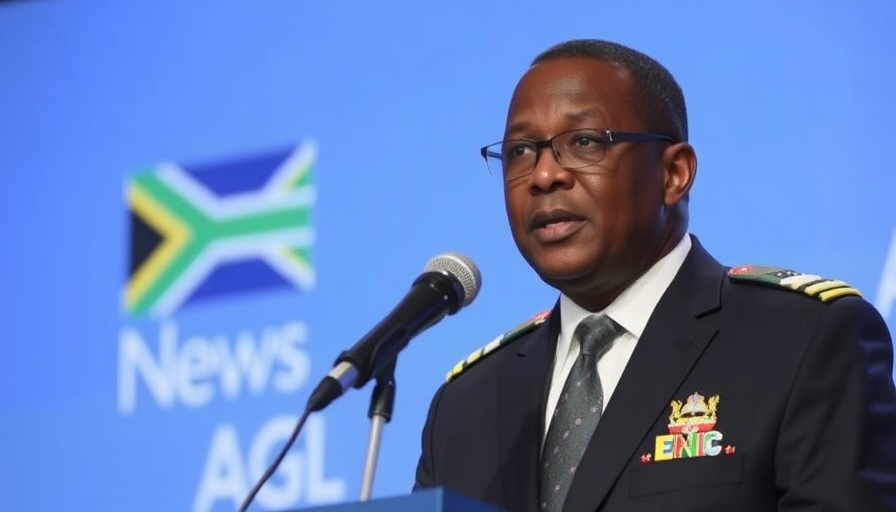
Political Landscape and Uncertainty Surrounding Safety of Leaders
The recent reports about an alleged assassination attempt on ANC Deputy President, Paul Mashatile, have sent ripples through the political fabric of South Africa, igniting heated discussions among party leaders and constituents alike. While security around Mashatile has been augmented by the South African Police Service (SAPS), many leaders within the ANC are expressing skepticism regarding the authenticity of the assassination claims. Concerns have been raised not only around the safety of political figures but also about the political motivations behind such allegations.
Community Reactions: Skepticism and Fear
As tension rises, the fear stemming from such claims can be palpable within the communities that these leaders serve. Public safety has been a growing concern, with South Africa grappling with a host of challenges including high crime rates and load shedding crises. The endorsement of these claims can exacerbate existing anxieties amongst citizens who already feel vulnerable in their daily lives.
The Role of Media in Reinforcing or Dismissing Narratives
The media’s role is instrumental in shaping public perception. As such, the skepticism expressed by ANC leaders regarding Mashatile’s alleged assassination attempt serves as a reminder to critically evaluate information before assimilating it into policy discussions. Misinterpretations or unfounded allegations can lead to dangerous precedents, influencing everything from political stability to social cohesion.
The Historical Context of Violence in South African Politics
A historical lens reveals the volatile nature of South African politics, with a legacy of political assassinations leading to a culture steeped in fear and mistrust. Understanding this backdrop adds nuance to current events, as citizens navigate a landscape marked by political violence intertwined with socio-economic struggles.
Potential Implications for the Upcoming National Elections
With national elections looming, any claim of violence against political figures can have significant ramifications. It has the potential to shift voter sentiments and influence party dynamics. As political parties like the ANC, Democratic Alliance, and EFF prepare for campaigns, the implications of perceived threats to leaders — whether real or manufactured — loom large.
The Continuing Struggle for Accountability and Transparency
Furthermore, the ongoing narratives surrounding alleged threats to political figures highlights the broader struggle for accountability and transparency in government policies and practices. The South African public remains vigilant, demanding not only the safety of their leaders but also the assurance that political processes remain fair and equitable.
Conclusion: Why this Matters
The implications of these developments extend beyond the political sphere. They touch on the essence of democratic engagement in South Africa. As professionals and citizens alike, it’s essential to stay informed about these dynamics, considering how they affect governance and the delivery of services amid ongoing public sector struggles. Reflecting on these issues can guide informed discussions and decisions as we move forward.
To remain updated on the evolving situation and its impact on South African politics, stay connected with reliable news channels and engage in community dialogues. Understanding these intricate dynamics will empower you as a voter and advocate for a more transparent and accountable governance system.
 Add Row
Add Row  Add
Add 




Write A Comment